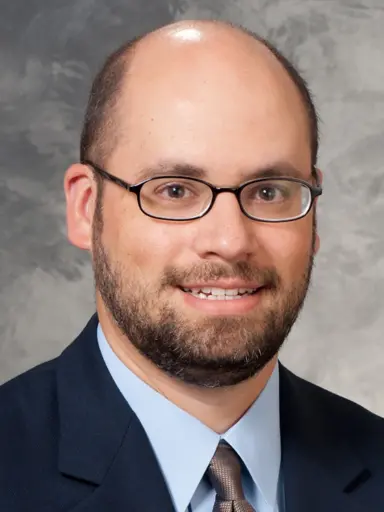Chimeric antigen receptor (CAR) T cells are biological assassins: white blood cells that are specifically engineered to attack cancer cells. Over the past five years, they’ve become an established therapeutic option for patients with blood cancer that has withstood standard treatments.
 Krishanu Saha
Krishanu Saha
But dueling with cancer cells is taxing work, particularly in solid tumor microenvironments that are resistant to the immune system. With that in mind, a team of University of Wisconsin-Madison researchers is working to produce CAR T cells that could deliver results in solid tumors, using gene editing rather than a viral method to manufacture them.
The group, led by Krishanu Saha, an associate professor of biomedical engineering, and Christian Capitini, an associate professor of pediatrics, has detailed the work in an article published in the Journal for ImmunoTherapy of Cancer.
The research builds upon recent breakthroughs from a handful of labs using CRISPR technology to genetically edit T cells, this time in the unique context of treating solid tumors. While CAR T cell therapies are regularly deployed against blood cancers like leukemias and lymphomas, progress in solid tumors has proven much more stubborn. Currently, no Food and Drug Administration-approved CAR T cell therapies exist for solid tumor cancers.
“That’s been the holy grail of the field,” says Capitini.
 Christian Capitini
Christian Capitini
To generate CAR T cells specifically tuned to attack tumor cells in neuroblastoma, a rare form of cancer that affects the adrenal gland and nerve cells almost exclusively in children, the research team used CRISPR/Cas9 gene editing to essentially cut and paste a piece of DNA into standard T cells. That DNA, which encodes the CAR, empowers the T cells to specifically target a sugar molecule found on the surface of neuroblastoma tumor cells, as well as some glioblastomas, melanomas and other types of cancers.
But unlike the standard method for manufacturing T cells, in which a modified virus carries the necessary DNA, using CRISPR avoids many safety concerns—by eliminating potential undesired effects of a virus—and delivers a more precise genetic edit.
“It’s a much cleaner way to put in our functionality,” says Saha, noting the CRISPR method inserts the CAR genetic material in one specific spot in the human genome—compared to tens of thousands of different spots with a standard viral vector.
That precision approach may improve treatment efficacy, too. In analyzing their CRISPR-generated CAR T cells vs. viral-produced ones, the researchers found theirs were more immature and less prone to exhaustion, traits that have correlated with better treatment results in blood cancers.
CRISPR CAR T cell production also circumvents the viral vector manufacturing bottleneck, a supply chain backlog that worsened during the COVID-19 pandemic. The UW-Madison group isn’t the first to use CRISPR to generate CAR T cells—a group at Memorial Sloan Kettering Cancer Center published its results in 2017—but no one had done it when then-PhD student Nicole Piscopo (PhDBME ’20) first took up the project in Saha’s lab back in 2015.
Under Saha’s guidance, Piscopo and fellow PhD student Katherine Mueller (PhD in Cellular and Molecular Biology ’22) built upon the nascent method to tailor CAR T cells to attack solid tumors. Their CRISPR-edited CAR T cells induced solid tumor regression in mouse models with neuroblastoma.
“There’s a huge, huge space ahead of us to improve treatments for these cancers that are currently incurable,” says Mueller, now a postdoctoral research fellow at Children’s Hospital of Philadelphia studying CAR T cell exhaustion.
Saha and Capitini plan to seek FDA approval for an investigational new drug application needed to start a clinical trial for the treatment—ideally in Madison through UW Health’s Program for Advanced Cell Therapy—and are exploring collaborations in the biomanufacturing industry through the Forward BIO Institute at UW-Madison and the National Science Foundation’s Engineering Research Center for Cell Manufacturing Technologies. They’re also pursuing a Cancer Moonshot grant through the National Cancer Institute for further research.
“The challenge in my mind is to get it into the clinic,” says Saha. “And we’re working night and day on that.”
Krishanu Saha is also a faculty member at the Wisconsin Institute for Discovery and holds the Retina Research Foundation Kathryn and Latimer Murfee Chair at the McPherson Eye Research Institute at UW-Madison. Christian Capitini holds the Jean R. Finley Professorship in Pediatric Hematology and Oncology. Saha and Capitini are both members of the UW Carbone Cancer Center and the Stem Cell and Regenerative Medicine Center. Nicole Piscopo is now a senior engineer in cellular process development at CRISPR Therapeutics.
Funding for this research came from the Wisconsin Alumni Research Foundation; National Science Foundation awards CBET-1645123, EEC-1648035, AWD-101645-G3/RJ375-G3, and DGE-1747503; National Cancer Institute award R01 CA215461; National Institute of General Medical Sciences awards R35 GM119644-01 and T32 GM008349; National Institute of Allergy and Infectious Diseases award U01AI57189; UW Carbone Cancer Center Support Grant P30 CA014520; St. Baldrick’s Stand Up to Cancer Pediatric Dream Team Translational Research Grant SU2C-AACR-DT-27-17; American Cancer Society Research Scholar grant RSG-18-104-01-LIB; and the MACC Fund.
Top photo caption: Scanning electron micrograph of a human T lymphocyte (also called a T cell) from the immune system of a healthy donor. Credit: NIH��.